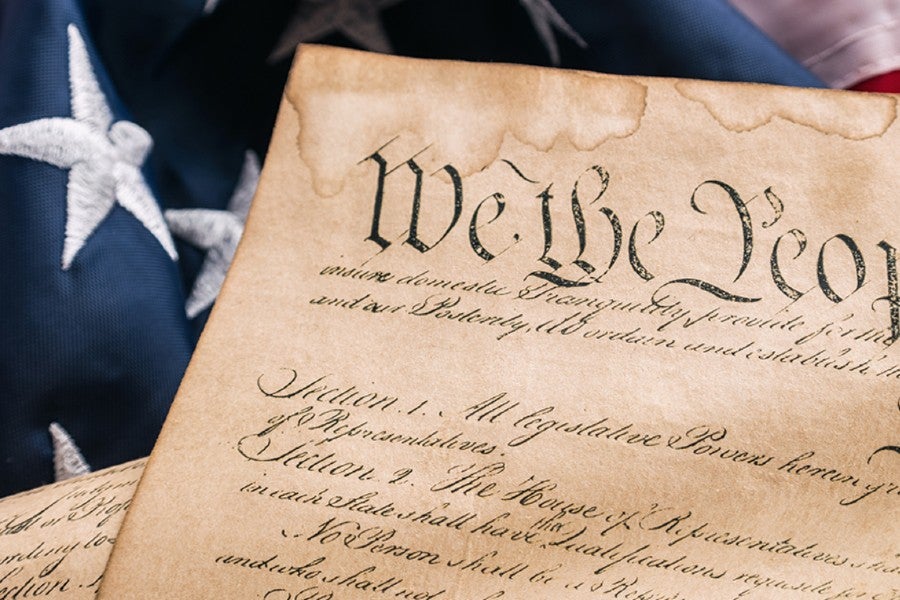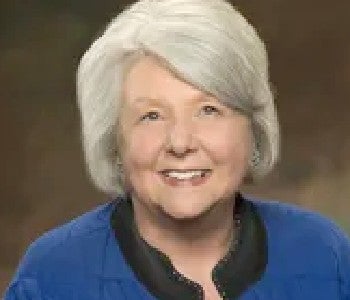America’s Civics Lesson: Common Good in the Time of COVID19
Linda Peek Schacht |

Linda Peek Schacht, former fellow at Harvard’s Center for Public Leadership, led Lipscomb’s Andrews Institute for Civic Leadership 2010-2015. This is the first in a series of blogs by Schacht on the importance of leadership and common good today.
Click here to see Schacht interviewed by The Tennessean's David Plazas as a Tennessee Voices guest on April 23.
* * * *
Over the last several elections, I have shared my thoughts in a blog titled America’s Civics Lesson reflecting on what we as citizens can do to strengthen our leaders, our country and ourselves in what were already turbulent times.
Now the COVID19 crisis has led to unprecedented disruption and sustained loss of life and livelihood. Against that backdrop, this weekly 2020 blog will focus on the role of leaders and citizens in creating the common good. What does leadership for the common good mean in a pandemic? What does it mean for government, nonprofit and business leaders? What does it mean in a polarized America facing local, state and Presidential elections? My hope is by next year’s Presidential Inaugural Address leaders coming together for the common good will be the new normal.
Today’s offering is my piece from the Sunday April 12 Tennessean and sets the stage for future posts.
How to advance the common good during the coronavirus crisis | Opinion
Recently, I began editing the handwritten pages of my dad’s life. His words took me into the world that shaped me: a community of citizens committed to the common good.
They were on my mind as I listened to Dr. Deborah Birx’s plea to Americans to stop the spread of COVID-19: “This begins and ends with community,” she said in the White House briefing room, as she called us each to be intentional in our individual contribution to the war on the virus.
My grandparents and parents were farmers and merchants, teachers and public servants. They understood the tension between the two foundational ideas of our republic.
While they valued their individual liberty, they expected their neighbors to join them in preserving and advancing the common good.

Linda Schacht
They believed in government and public service. They honored the dignity of work and cared for those in need. They believed it was the duty of citizens to stay informed.
They held the right to vote sacred and their leaders accountable, demanding truth and transparency. They respected experts who grounded their advice in facts.
Why civic clubs matter
Their work strengthened the fabric of their community and stitched it together when it frayed. In the Depression, they fed those in need from the family farm and made loans and offered credit from the family dry goods store.
They were justices of the peace, mediating disputes and precinct captains who got out the vote. They served on city council and led the desegregation of county schools. With government funds they built libraries and high school science labs.
Their civic clubs sponsored oratorical contests on the Constitution to remind us of the rights and responsibilities of citizens.
They were driven by a moral imagination to create the common good, a moral imagination shared by the citizens and leaders of Nashville over the last decades.
In 2018, Steve Turner and I interviewed many of those leaders for his “Little Book of the Common Good” produced for Lipscomb’s Business with Purpose luncheon. The shared beliefs from those interviews and those of my childhood community serve us well in the time of COVID-19.
Why elected officials matter
Government matters. There are things only government can do. Elected officials succeed or fail based on their understanding and use of the authority and resources of government, writes political scientist Elaine Kamarck.
An elected official new to the public sector in particular must turn quickly to those who know the levers of government and heed their advice on how and when to use them. Today, lives literally depend on it.
Public service and expertise matter. In this pandemic, we look to public servants, many with a lifetime of expertise, for plans to fight the virus and guide our behavior.
They deserve respect from citizens and leaders. Mayor Cooper acted early to create a coronavirus task force tapping Nashville’s vast healthcare resources including Meharry president Dr. James Hildreth, renowned AIDS researcher and infectious disease expert.
A strong belief in science can coexist with a strong faith in a higher being, as President Jimmy Carter reminded us when he was starting treatment for brain cancer. We can honor a day of prayer while still acting on the advice of medical experts.
Why truth and transparency matter
Truth, facts, and transparency matter:
“We are doing the people’s business and we should be able to explain it” said former White House press secretary Marlin Fitzwater.
Good advice for mayors and governors, too, who polled at 72% as the most trusted government leaders in this crisis.
Maryland Governor Larry Hogan, head of the National Governors Association, publicly organized the governors’ requests for federal help.
At the epicenter of the spread, New York Governor Andrew Cuomo’s daily briefings are a case study in transparency, fact, action and inspiration. With updates on the spread and impact of the virus, he explains and takes responsibility for his actions and shortcomings, is honest about the shortfalls he is working to meet with the federal government, and calls us to our better selves. You can’t spin a virus.
Why a free press matters
Informed citizens and a free press matter. My childhood community valued newspapers, radio and television news. They read beyond the headlines. Then they discussed, disagreed and learned from each other.
There’s more information today, but not necessarily more knowledge and wisdom. Let’s use this time to get out of our information bubbles of cable news and social media.
Turn to your local news and a network nightly newscast, both attracting more citizens during the pandemic and polling most trusted. Pay back our Founders Fathers for protecting a free press by supporting local and national journalists and news organizations.
Don’t spread fake cures and conspiracy theories called virtual deception or VD by scholar Kathleen Hall Jamieson. Avoid it by learning and practicing news literacy. Find out how at newslit.org.
You can serve the public good from where ever you are.
In times of crisis, government, business, and nonprofits come together to make hard decisions, pool their resources and expertise. Individual leaders set aside their egos to listen to experts and not worry who gets the credit or the blame.
Citizens curtail individual liberty for public health and encourage others to do the same. Journalists question leaders, inform citizens and inspire us with stories of kindness.
We are seeing a renewal of cooperation
Essential businesses are hiring, auto workers are making ventilators, and individual citizens are producing face shields in their garages or masks on their sewing machines. Convention centers and parks are becoming field hospitals.
Governor Lee has formed a partnership with the grocers and hospitality associations and the Tennessee Department of Labor and Workforce Development to keep people working.
Across the country citizens go on balconies at the end of hospital shifts to “make a joyful noise” honoring healthcare heroes and first responders. Pharmacy and grocery workers continue to show up for work while we shelter in place.
In Nashville studio singers inspire us with their cell phone production of “It Is Well with My Soul” and Dr. Bill Frist, heart surgeon and former Majority Leader of the US Senate, uses YouTube to inform and speak truth to power.
Cultural institutions in Nashville and across the world are sharing their performances and exhibits online. In Baltimore, neighbors in a cul de sac walk to the end of their driveways for the Pledge of Allegiance every morning, a collective commitment of solidarity.
The citizens of Nashville inspired the 2010 creation of Lipscomb’s Nelson and Sue Andrews Institute for Civic Leadership, with its vision ‘Great Communities are Intentional, not Accidental”.
The gaps in our systems highlighted by this crisis can be addressed on the other side of this pandemic.
For now, let’s all intentionally commit to advancing the common good, in our own way, now and on the other side of the pandemic. Let’s listen to Vince Gill as he closed the online Opry recently: “Ya’ll be sweet to each other.”